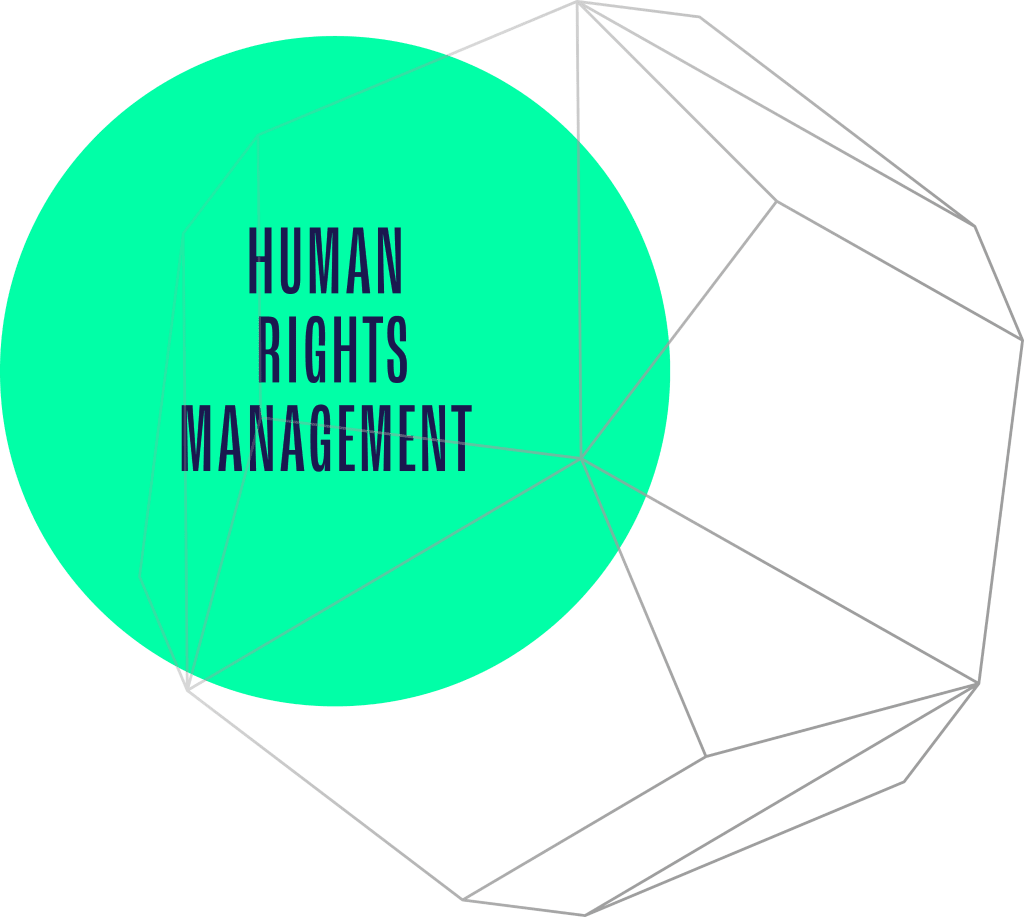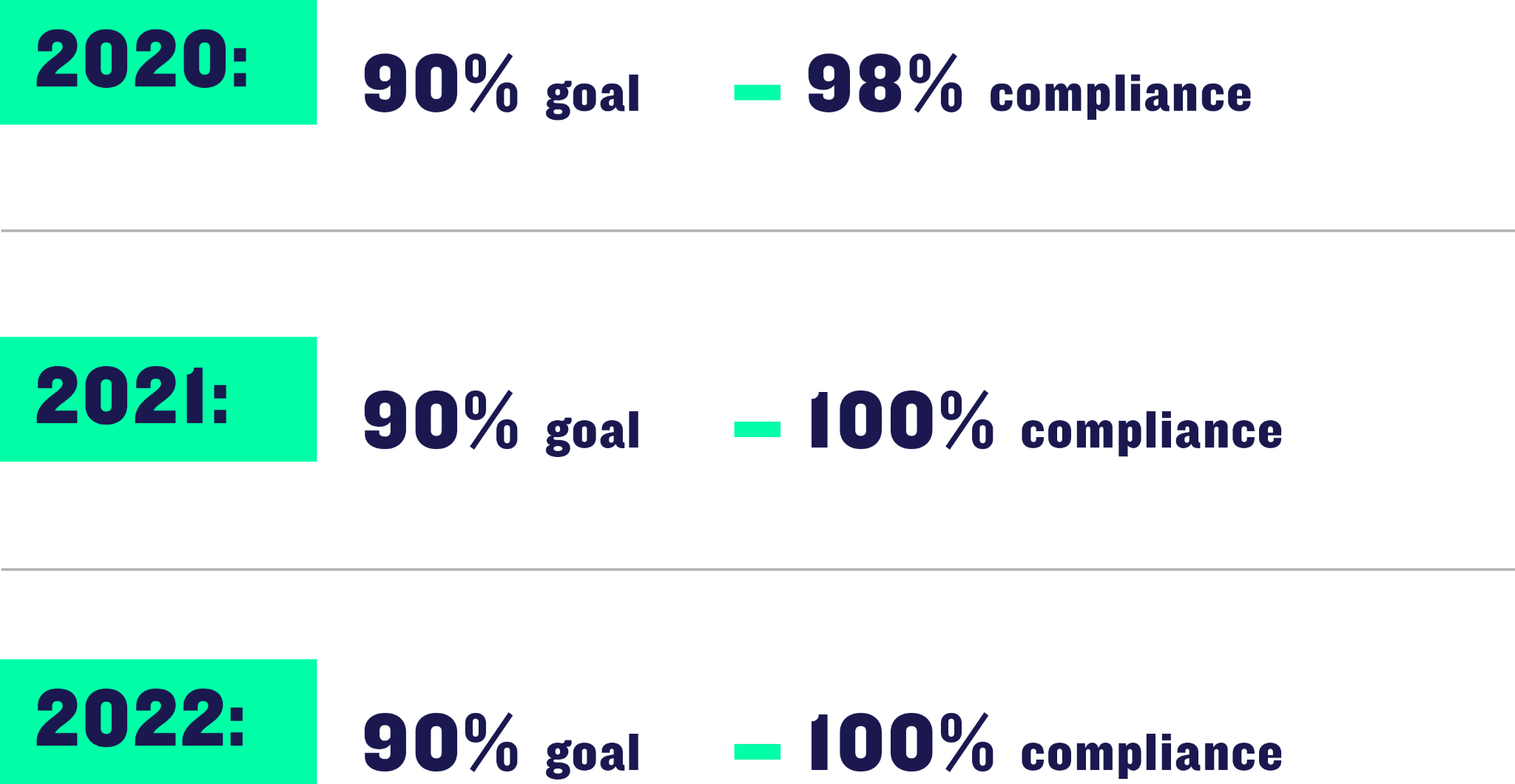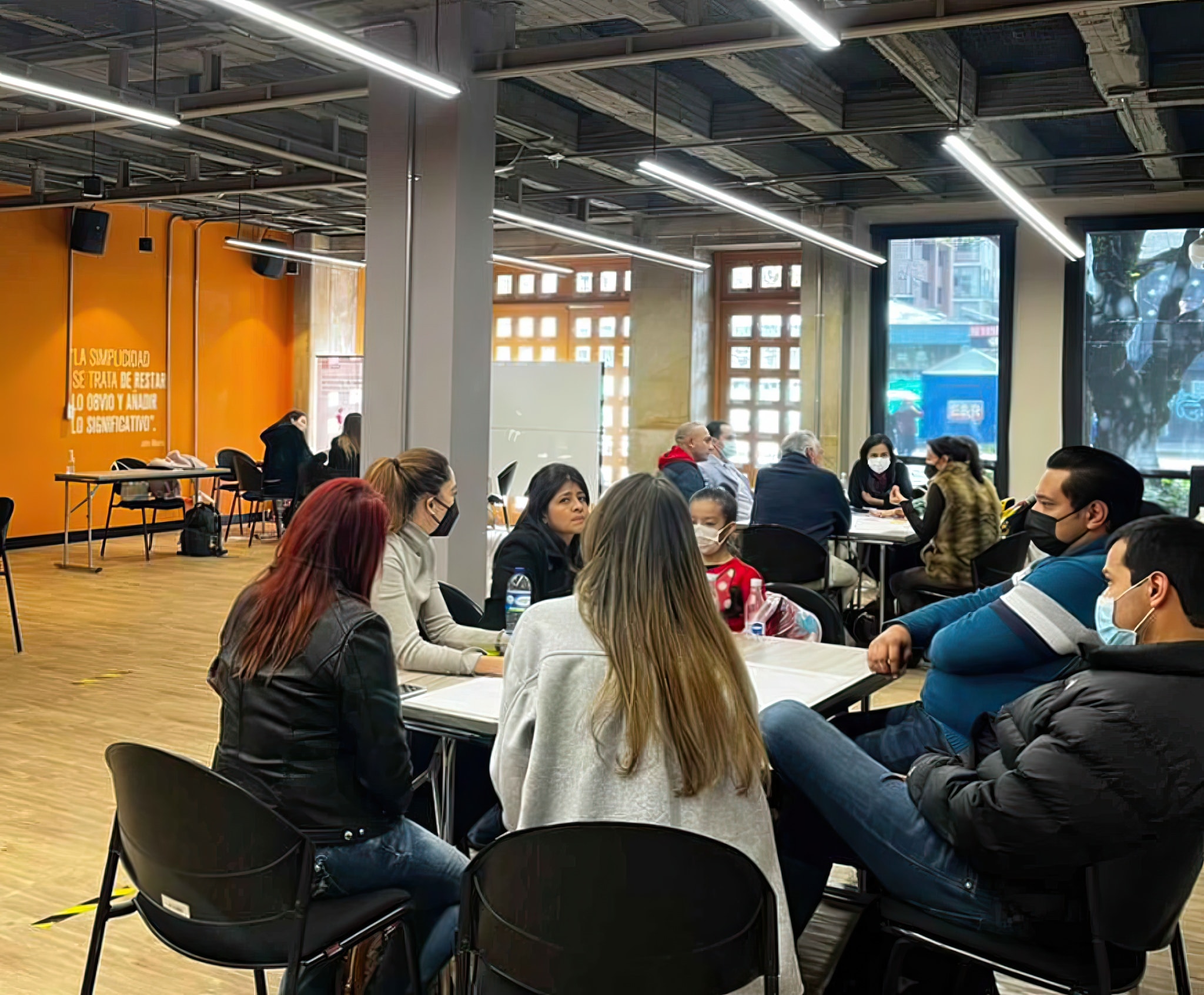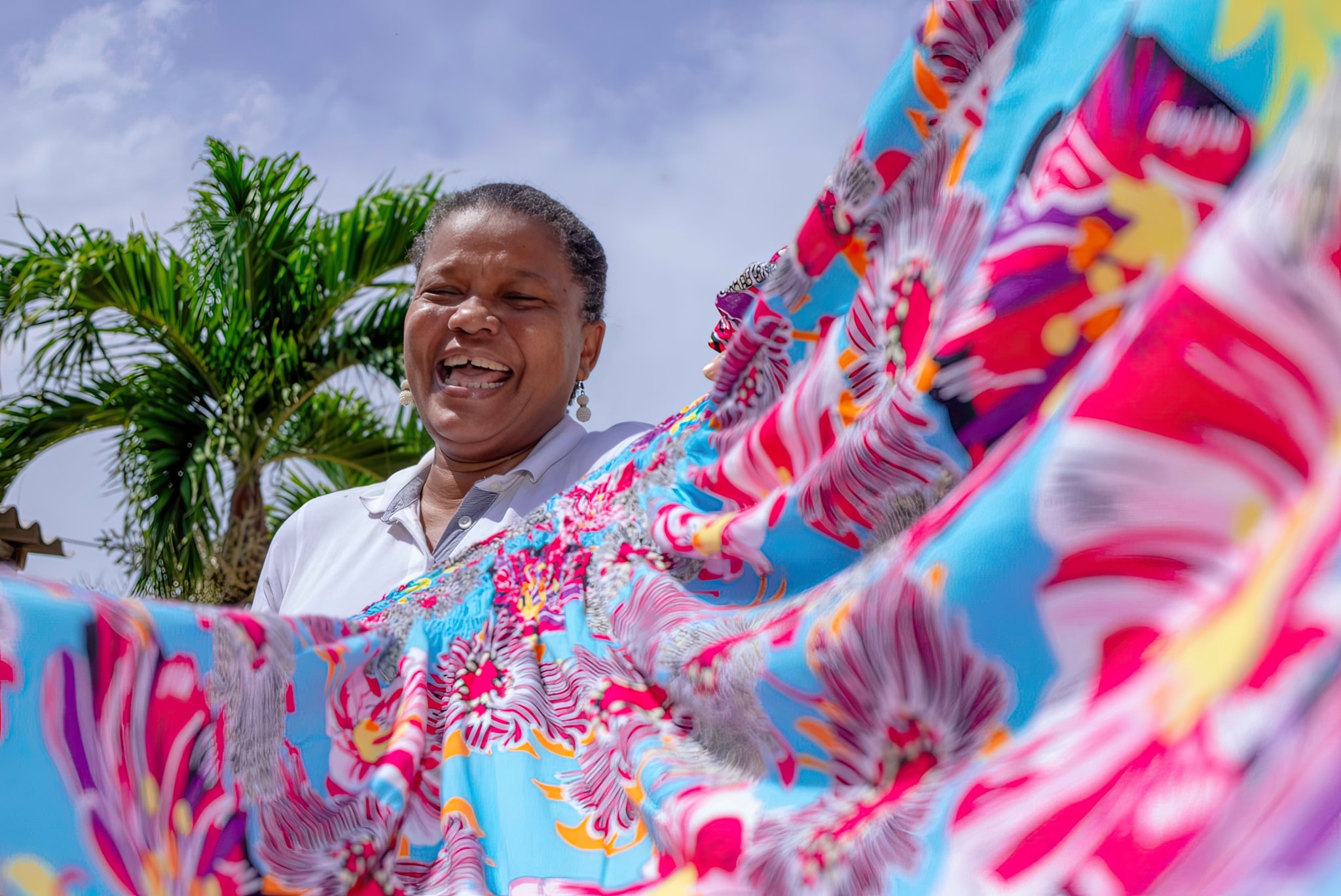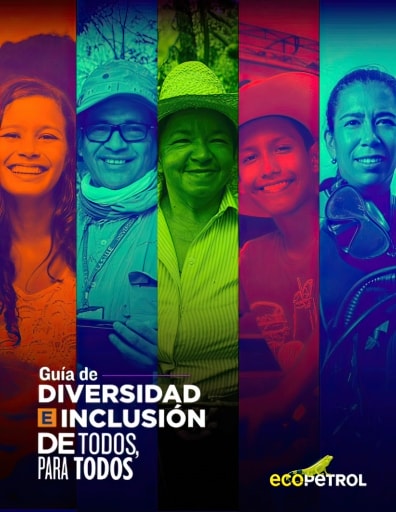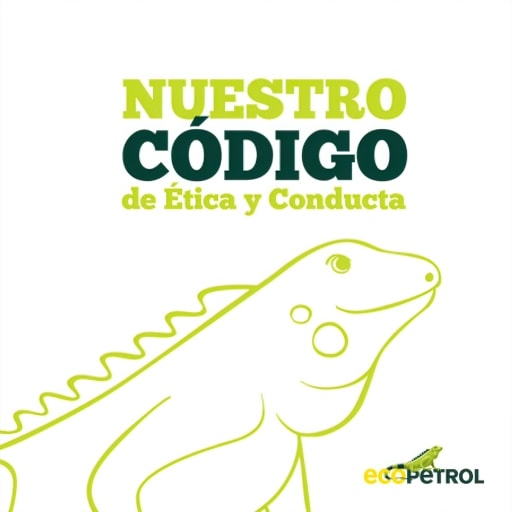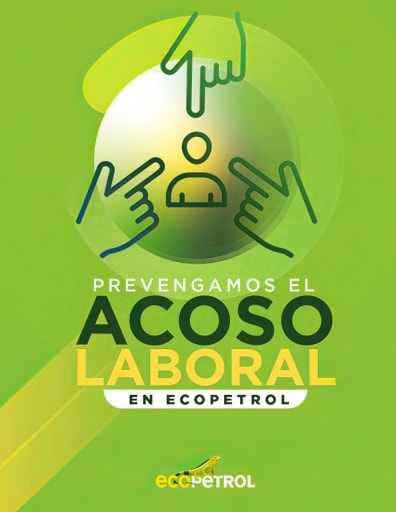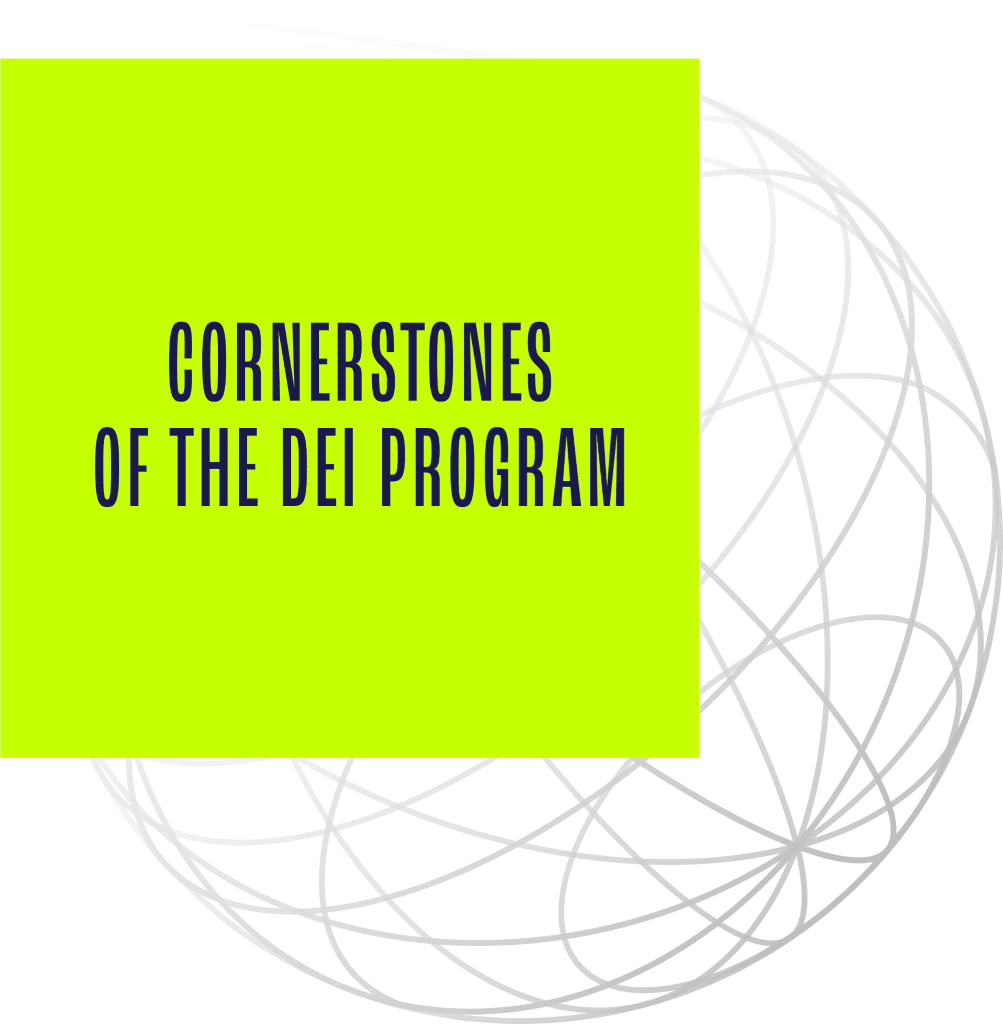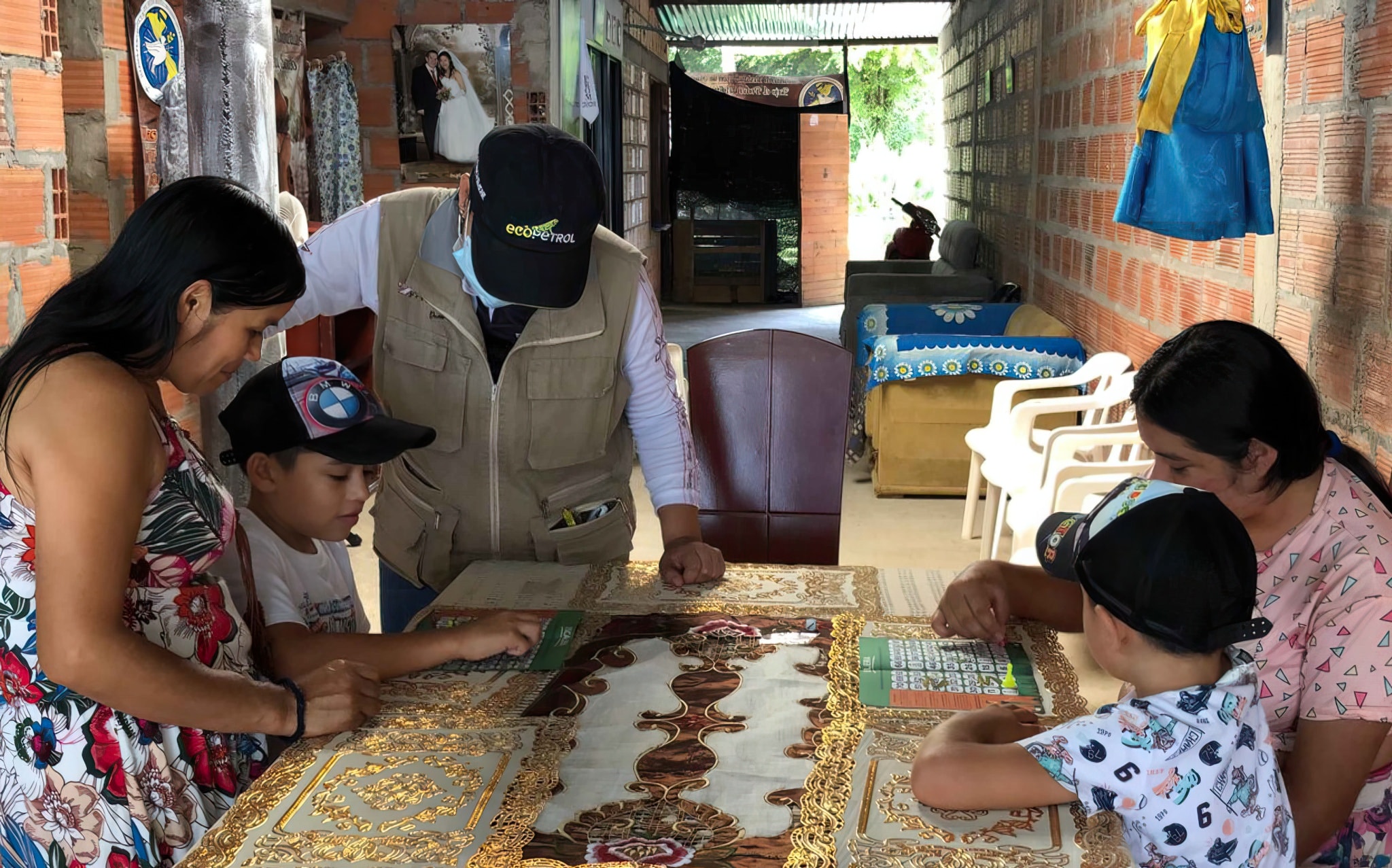IV.3. Social
Human rights
Commitment to Human Rights.
At Ecopetrol, there is a culture of respect and promotion of human rights.
The Company’s public commitment, contained in the Human Rights and Business Guide, is cross-cutting to all work teams at the strategic, tactical, and operating levels, and extends to all rights internationally recognized in the United Nations International Bill of Human Rights and the principles set forth in the International Labor Organization’s (ILO) Declaration on Fundamental Principles and Rights at Work. This commitment responds to the highest international standards, including the United Nations Guiding Principles on Business and Human Rights (UNGP), the Ten Principles of the Global Compact, and the OECD Guidelines for Multinational Companies.
The Human Rights and Business Guide was discussed by the Board of Directors and approved by the president of Ecopetrol. The guide establishes that the Ecopetrol Group is committed to respecting Human Rights, and requires that its workers and suppliers abide by this commitment for the performance of their activities. It also promotes adoption among its partners, associates, and other players with whom the Group engages in contractual or commercial relationships, especially within the framework of the activities undertaken jointly with the Company.
The commitment to respect and promote Human Rights can be also found in the Code of Ethics and Conduct, which contains mandatory compliance guidelines in this regard, and was approved by the President of the Company and the Board of Directors. The Board of Directors and workers of Ecopetrol and its Group are recipients of the Code of Ethics. All natural or legal persons are related to it, including beneficiaries, shareholders, contractors, suppliers, agents, partners, customers, associates (including joint venture), and bidders, in addition to the personnel and firms engaged by contractors for the execution of the agreed activities. Therefore, this Code is of mandatory knowledge and application by its recipients.
The Labor Guide for activities contracted by Ecopetrol also contains human rights guidelines.
Within the framework of its operation and its contractual and commercial relations, Ecopetrol has declared that it acts proactively and in a differentiated manner to respect and promote the following rights and freedoms: the right to life, personal integrity, personal freedom, freedom of union association and collective negotiation, the right to decent, favorable, and adequate conditions, the prevention of forced and child labor, the right to health and safety at work, children’s rights, the right to equality and non-discrimination, freedom of expression, the right to information, the right to privacy and the protection of personal data, the right to the participation of ethnic groups through prior consultation, and collective and environmental rights.
In line with its commitment, and in accordance with the Guide on the Human Rights Risk Management Cycle, Ecopetrol ensures its due diligence by identifying, preventing, mitigating, and, if applicable, remediating Human Rights risks or situations affecting one or several Human Rights (of all human beings) as a direct or indirect consequence of its business activities. The Stakeholder Groups considered when performing this due diligence are workers, pensioners, beneficiaries, the community, contractors, and other players related to Ecopetrol.
In line with the principle of differential approach, Ecopetrol respects the rights of people belonging to groups that may be particularly vulnerable to adverse impacts on their human rights. Accordingly, in developing its business activity, the Company applies the differential gender approach and the ethnic approach. Populations with disability; boys, girls, and youth; and the migrant population are also considered as subjects of differential approach. It is worth noting that, considering the important role of human rights defenders for democracy and for society, Ecopetrol has also declared its Commitment to Human Rights Defenders.
Roles and responsibilities
Human Rights are a matter of corporate responsibility relevant to all Ecopetrol Stakeholder Groups, and cross-cutting to the 2040 Strategy and various material elements of the TESG pillar. For the proper management thereof, the Company has implemented an internal distribution of strategic, tactical, and operating responsibilities.
The Board of Directors has a Corporate Governance and Sustainability Committee, which is a support body responsible for the good governance and sustainability of the Company. This Committee has reviewed the strategy, trends, and progress made in the area of Human Rights, as well as the critical issues arising from the due diligence exercises carried out periodically. The Steering Committee, made up of the President and Vice Presidents of Ecopetrol, are also permanently informed of the Human Rights efforts in the Company.
For its part, the Vice Presidency of Corporate Affairs and Secretary General (VAC) oversees Ecopetrol’s consolidation as an exemplary corporate citizen, guiding the Group’s behavior towards best corporate responsibility, TESG, and Human Rights practices and standards. To guarantee the foregoing, this Vice Presidency is in charge of governing and guiding Human Rights issues at Ecopetrol.
Finally, both the corporate and business areas have related responsibilities in their operation and management, such as the identification and management of operating Human Rights risks; Human Rights assurance in the supply chain, in the engagement with partners, communities, and the territory, and in union management and labor conditions, among others.
Ecopetrol’s human rights management is framed within six (6) principles under the Human Rights Guide:
Every year, Ecopetrol produces its Human Rights Action Plan, a tool that ensures the proper adoption of due diligence and Human Rights guidelines. Based on the PDCA cycle, the actions to be deployed are established to ensure management in accordance with relevant standards.
(GRI 2-24) (WEF 22E) (SASB EM-EP-210a.3) (SFC XVII)
Due Diligence
Within the framework of its management efforts, Ecopetrol refrains from infringing the human rights of third parties and pushes back any negative consequences on the human rights in which they are involved (Guiding Principle 11). In this sense, the commitment to respect these rights materializes by guaranteeing due diligence in this regard.
To this end, the Guide on the Human Rights Risk Management Cycle develops guidelines for the performance of adequate Human Rights due diligence by all areas. This Guide defines the criteria and processes to identify, evaluate, address, and monitor Human Rights risks, to detect situations of potential impact on Human Rights. This cycle therefore guarantees responsible business conduct in the Company’s own activities or those of the supply chain, in accordance with the SRI.
Due diligence at Ecopetrol meets the highest standards, with special consideration of the provisions set forth in the UNGPs, the OECD Guidelines, and the ILO Conventions. This process includes consultation with the different Stakeholder Groups, considering the variables of severity and probability.
There are guidelines for pre-contractual enlistment in the supply chain to ensure the suitability of the suppliers prior to being hired, and there are also contractual clauses on Human Rights and contractor performance evaluation mechanisms that include criteria associated with Human Rights.
Furthermore, Ecopetrol applies the international standard of Voluntary Principles on Security and Human Rights through three (3) lines of action
- 01
Analysis of security and Human Rights risks in all areas of operation, - 02
Transparent engagement with public forces by means of collaboration agreements and - 03
Contracts with private surveillance companies that incorporate due diligence practices in security and human rights as contractual obligations.
(GRI 411-1, 412-1, 2-24, 11-17-2) (WEF 22E)
Human Rights Assessment
As part of its due diligence efforts, Ecopetrol identified and evaluated possible impacts and risks associated with respect for Human Rights in its own activities, and also in the supply chain and other commercial relationships.
| Human Rights Assessment in 2022 | Percentage of total operating sites where human rights risks have been assessed | Percentage of total operating sites where human rights risks have been identified | Percentage of operating sites presenting human rights risks, in which management measures have been adopted |
|---|---|---|---|
| Own operations | 100%* | 100% | 100% |
| Contractors and Tier 1 Suppliers | 100%** | 1.4%*** | 100% |
| Joint Venture | 100%* | 100% | 100% |
and Vice Presidency of Corporate Affairs and Secretary General
*Ecopetrol’s goal in 2022 was to assess, identify, and mitigate risks in its own operations and joint ventures in the Orinoquía region. The geographical area for this analysis included the following municipalities in the department of Meta: Villavicencio, Acacías, Guamal, Castilla La Nueva, Cubarral, San Martín de los Llanos, Puerto Lleras, San Carlos de Guaroa, and Puerto López.
**Ecopetrol selected its strategic and core suppliers for 2022, which account for 80% of the Company’s expenses.
***In 2022, human rights risks have been identified in three (3) of the 215 strategic and core suppliers assessed, that is, 1.4% of all suppliers, who have adopted an improvement plan based on the gaps identified, covering 100% of the suppliers that require it.
This evaluation allowed Ecopetrol to identify risks and create action plans for prevention and treatment, while also covering the analysis of the rights expressly recognized by the Company in its Human Rights Guide, including the right to life and personal integrity, the right to a dignified life, the right to a healthy environment and to health, access to information and participation, among others. Similarly, special consideration was given to women, children, and youth, Indigenous peoples, migrant workers, contractors, local communities, and victims of armed conflict in the Company’s due diligence practices and for the analysis of Human Rights risks.
(GRI 408-1, 409-1, 11-12-2) (WEF 14, 22E)
After conducting human rights risk analyzes at the regional level and continuous monitoring of the operation, no cases have been identified associated with forced or compulsory labor in Ecopetrol’s own operations or in its supply chain. Similarly, no risks pertaining to child labor incidents were identified in its own operations or throughout its supply chain.
(GRI 2-25, 411-1, 412-1, 11-17-2) (WEF 22E)
Mitigation and Remediation Measures
The Human Rights and Business Guide, in addition to establishing the public commitment to respect and promote Human Rights, defines available remedial mechanisms for eventual impacts that the activity may directly or indirectly generate on rightsholders. The foregoing, following up on the provisions set forth in the UNGPs.
The Company provides internal and external channels accessible to all Stakeholder Groups to address all kinds of claims, including those related to Human Rights. Accordingly, rightsholders who feel affected by Ecopetrol’s business activity can use the following channels to submit their claims: citizen participation offices, Ethics Line, Labor Coexistence Committee, Human Rights Commission of the Current Collective Labor Agreement, and environment committees. In this sense, Ecopetrol is able to manage, analyze, and provide a quality and timely response to the requests received.
In the case of disputes arising from the operation, without prejudice to the right of the community or any other Stakeholder Group to opt for the administration of justice, Ecopetrol promotes the use of Alternative Dispute Resolution Mechanisms (MASC, as per its Spanish acronym). The Company acknowledges that the National Point of Contact, provided for in OECD Guidelines, regulated by Decree 1400 of 2012 and currently headed by the Ministry of Commerce, Industry and Tourism of Colombia, is a mediation mechanism in situations of dispute concerning the implementation of the aforementioned guidelines.
In the cases that Ecopetrol identifies that it has caused or has contributed to causing adverse impacts on human rights, the situation shall be addressed in a particular way in each case, providing the relevant compensation or remediation.
To identify possible impacts on Human Rights, Ecopetrol has adopted the Guide on the Human Rights Risk Management Cycle Guide. It is part of the SRI and the single risk management cycle, which allows the Company to ensure Human Rights due diligence in a permanent and timely manner.
This cycle is based on the following stages:
Surveying Operating Risks on Human Rights at Ecopetrol
Survey on human rights operating risks
| Phases | Stage | Actions / activities |
|---|---|---|
| Preparation phase | Communication Planning | Education sessions and socialization of the Guide, and iterations with prioritized areas on the planning of the Human Rights risk assessment process since these areas of special attention due to their activities or operations. |
| Information gathering phase | ID Assessment | Compilation of information through field work and focus groups for the characterization of Human Rights risks and their subsequent evaluation, considering the criteria of severity and probability and following the methodology proposed by the Guide, in accordance with the UNGP. |
| Action plan phase | Treatment Monitoring Registration, reporting, and responsibilities | The purpose of this phase is to define and implement the appropriate actions according to the identified risk. It provides guidelines on the periodic monitoring of the treatment measures established and the responsible persons are assigned for the management of human rights risks according to the level of risk. |
Human Rights risk
mitigation plans
Prevention and mitigation actions are taken in Ecopetrol’s operations in order to prevent or mitigate negative impacts on rightsholders. Below are the prevention or mitigation measures adopted for the following Human Rights that receive special consideration:
| Human Rights | Mitigation measures adopted |
|---|---|
| Block of rights: Life and Personal Safety | |
| Right to life Right to personal integrity Right to free movement Right to personal liberty | At the beginning of each operation, Ecopetrol conducts human rights risk analyses and deploys environmental plans, as well as a monitoring plan in coordination with the institutional framework for the safety of workers and the community, and engagement plans with stakeholders of special interest (communities, human rights defenders), incorporating strategic pillars in social investment, physical security, and human rights management. Ecopetrol acknowledges that the private sector plays a fundamental role in promoting and respecting internationally recognized human rights. In compliance with this commitment to respect human rights and the corresponding corporate due diligence, Ecopetrol has established corporate guidelines to appropriately address complaints about events that threaten or affect the life and integrity of human rights defenders, social leaders, workers, the community, contractors, and all rightsholders in general. This corporate route indicates that, upon awareness or receipt of a complaint for alleged threats or impacts on life and personal integrity, the situation must be immediately reported to the area in charge (Corporate Responsibility Management), for it to define whether previous actions have been executed or if there is useful context information for said analysis, especially with the teams responsible for engaging with communities and contractors, citizen participation, and security. Ecopetrol subsequently forwards the complaint to the competent authorities, at the regional and/or national level, for their involvement in the matter, since they are the ones responsible for offering protection to the victims by establishing and adopting adequate protection measures, regulatory activities, and bringing the relevant parties to justice. |
| Block of rights: Dignified life and adequate standard of living | |
| Right to decent conditions and the non-sexual exploitation of minors | From its corporate Human Rights policy, the Company rejects any type of act that violates the rights of children and adolescents; and from its operations, the Company designs and implements permanent social engagement strategies in the regions with contractors. Similarly, it implements contractual assurance procedures based on commitment to prevent this type of events from players in its supply chain, and offers a training and education plan on the subject of Human Rights for its Stakeholder Groups, in partnership with local authorities. The Company also reports these situations to the competent authorities, requesting adequate investigations of the facts and the protection of the rights at risk. |
| Right to decent work and rejection of forced, compulsory, and child labor | Within the framework of its operation and contractual and commercial relationships, Ecopetrol acts proactively and places special attention on the children’s group. For this reason, by means of its labor guidelines, the Company requires its supply chain to reject and abolish any form of child labor. It also strengthens the business fabric by generating capabilities for entrepreneurship and innovation, thus favoring the generation of income and employment in the communities. |
| Right to gender equality, diversity, and inclusion | Ecopetrol has the Diversity and Inclusion Program in which it promotes the labor inclusion of populations of difficult placement into the labor market (women, people over 45 years of age, youth between 18 and 28 years of age, Afro-descendants and indigenous people, victims of armed conflict, people with disabilities, and people without work experience). The Company develops inclusive employment projects in all its activities and operations, such as “Retos innóvate de mujeres emprendedoras” and courses for female entrepreneurial leaders and work sessions with local suppliers and partner companies, training plans for workers and contractors on gender-based violence, sexual harassment, and reporting hotlines, and reviews goods and services contracts involving these rights. Block of rights: Decent working conditions |
| Right to decent working conditions in the supply chain | Ecopetrol establishes spaces for dialogue with contractors, communities, and institutions to encourage transparency in working conditions. By evaluating the performance of contractors on labor-related issues, HSE, and environmental management, it defines and structures their improvement plans to eliminate negative causes and impacts. Contractual assurance by means of the contractual annex on Human Rights and its “Guide to labor aspects and conditions in activities contracted by Ecopetrol,” which requires the commitment to respect and promote labor rights. |
| Right to decent working conditions for direct workers | Right to education The benefits portfolio is intended to promote the well-being of employees and their families, and ensure employment in decent and adequate conditions, focusing on five (5) major aspects: health and safety, education, loans, savings and investment, non-monetary benefits. In compliance with the Current Collective Labor Agreement (CCTV) 2018-2022*, the workers covered by it have access to the Educational Plan that contributes to the professionalization of workers. *CCTV is valid until December 31, 2022. A new collective agreement will be negotiated at the beginning of 2023, if the legal requirements for this purpose are met. |
| Right to work and equal opportunities | |
| Hiring local labor and procuring local goods and services | Ecopetrol prioritizes the hiring of local labor, for which it has set a comprehensive strategy for local labor, goods, and services, materialized in its supply process and its indicator on “Sustainable and Inclusive Economic Growth” (Goods and Services + Inclusive Employment). The Company discloses information on the jobs that can be performed by local labor, as well as prevention and institutional assurance days via inspection, surveillance, and control activities with the Ministry of Labor and the Public Employment Service, and labor audits conducted on contractors by the labor assurance group. It also organizes sessions for updating CVs and establishes permanent dialogue with local authorities to ensure transparency. |
| Right to freedom of association and collective bargaining | Ecopetrol maintains a work scheme with the union organizations in the Company, through harmonious and constructive labor relations based on direct communication structures, and fulfills the commitments agreed with union organizations, as established in the Collective Bargaining Agreement and other agreements. |
| Right to freedom of opinion, information, and expression | The Company has several internal communication channels for workers to communicate with senior management to file complaints or report any other issue that affects their decent working conditions. These include the systematic meetings held in each of the Vice Presidencies and areas that make up the organization, the ethics hotline, the OPC, and the Labor Coexistence Committee. |
| Right to freedom of opinion, information, and expression in the supply chain | The Company contractually requires its contractors to guarantee the mechanisms for receiving and managing petitions, complaints, claims, and suggestions (PQRS, as per its Spanish acronym) from its workers and other Stakeholder Groups. |
| Right to health and safety at work | Ecopetrol has implemented the HSE Management System, which seeks to establish the necessary requirements for the Company to adequately manage its risks, in order to enhance the protection of life and the environment. The System entails the development of a logical and phased process based on continuous improvement, including culture, leadership, policy, organization, planning, implementation, evaluation, auditing, and improvement actions, in pursuit of anticipating, recognizing, evaluating, and controlling the risks that may affect safety and health at work and the environment. |
| Rights cluster: society and local communities | |
| Right to a healthy environment | Ecopetrol uses Minimum Impact Technologies (TMI, as per its Spanish acronym) in its operations to protect biodiversity and the ecosystems, conducts robust Environmental Impact Assessments (EIA) in agreement with institutions (Universities and Research Centers), and establishes baselines for the area of influence. It similarly conducts environmental cleanup of unresolved cumulative impacts, in compliance with the Environmental Management Plan (PMA). |
| Right to information and citizen participation | In executing its operations, the Company has adopted an engagement model with surrounding communities, which ensures the identification and assessment of social impacts and the definition of prevention, mitigation, control, and compensation measures. For the identification of impacts, ample and sufficient citizen participation spaces are organized in pursuit of a respectful and representative relationship, favoring active listening and allowing access to information in a transparent, complete, and timely manner, and adapted to the language and cultural approach of each case. On the other hand, the Citizen Participation Office provides timely and relevant information on the projects and operations deployed in the territories, in order to ensure clarity and transparency and solve the PQRS submitted by the local communities and the society. |
| Right to property. Resettlement | Ecopetrol has designed procedures and guidelines for the proper management of the risks and impacts generated by the involuntary displacement of the population, caused by the Company’s operations and projects under the highest international standards. (International Policies on the Resettlement of Populations: World Bank OP 4-12. BID OP-710. The International Finance Corporation’s (IFC) Manual for the Preparation of the Resettlement Plan. |
| Right to prior consultation | Ecopetrol relies on guidelines for Prior Consultation processes, according to legal criteria and in coordination with state authorities, to prevent and mitigate any risk on the ancestral rights of ethnic communities and their ways of life, as well as to guarantee their active and effective participation in the decisions to be adopted by the competent authority to promote the recognition and protection of the diversity and integrity of cultures. |
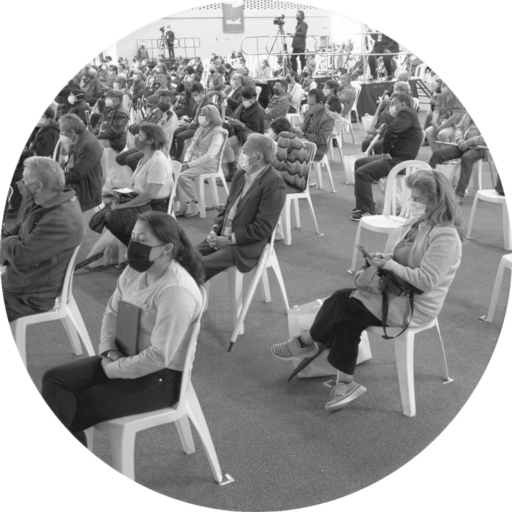
Communication and Training
Ecopetrol conducts annual training on Human Rights for its Stakeholder Groups, including government bodies, personnel, suppliers, and partners. They address internal policies and the commitment to respect human rights at Ecopetrol, as well as issues related to the UNGPs, the ILO Tripartite Declaration, and other labor issues, including decent work and the prevention of forced labor.
Training is ensured through the following means: virtual human rights course, virtual and in-person training with internal or external experts, human rights talks via streaming, sending information with key messages on the subject, and conducting focus groups to assess human rights risks, among others.
The following achievements can be highlighted:
More than 8,600 workers trained through Ecopetrol’s virtual course on Human Rights and Business.
A total of 1,127 people connected to the human rights streaming sessions.
Two (2) focus groups involving 14 Ecopetrol Vice Presidencies to reinforce the review of the Human Rights strategy and understand the opportunities for improvement in different areas of the Company.
Of the 9,217 participants in the 2022 Commitment to Transparency survey, 99.8% are aware of Ecopetrol’s public commitment to respect Human Rights, and 100% are committed to respecting the Human Rights of the different Stakeholder Groups.
Training was provided in the risk of landmines in the areas of operation to approximately 250 workers, including physical security, HSE, hydrocarbon seizing, and Cenit teams.
The human rights self-diagnosis was applied to the supply chain of Guías Colombia.
Human Rights training was provided to approximately 1,200 workers, more than 900 suppliers, around 2,500 physical security contractors, and 10 partners, emphasizing Human Rights due diligence, respect for social leaders, and the commitment to respect Human Rights in the Company.
Communication pieces about human rights were sent to 100% of the partners.
Human rights issues were included on the agenda of Regional Supplier Summits (Cartagena and Orinoquía), with the participation of more than 350 companies.
(ECP011) Compliance with Conventional Human Rights Commitments
The 2018-2022 Collective Bargaining Agreement incorporates Chapter XVII on “Human Rights and Peace,” by virtue of which Ecopetrol and the Oil Industry Workers’ Union – USO join efforts to foster respect, compliance, and disclosure of Human Rights in the Company and in the regions where it operates.
The National Human Rights and PEACE ECP-USO Commission is made up of two (2) representatives from Ecopetrol and four (4) representatives from the USO Union Organization, in addition to six (6) Human Rights and Peace subcommittees, made up of Ecopetrol and Union representatives, who work jointly on the advancement of said chapter.
Main Activities of the National Human Rights Commission ECP-USO 2022
Eight (8) due diligence meetings on security and human rights.
Twelve (12) ordinary sessions and three (3) extraordinary sessions on Human Rights.
Two (2) semi-annual meetings on Human Rights, with the attendance of the National Human Rights and Peace Commission and the ECOPETROL-USO Human Rights Regional Subcommittees.
In agreement with Universidad Nacional de Colombia, the National Diploma Course on Human Rights and Peace was offered, with the participation of 37 workers and members of the USO and other union organizations.
Follow-up on agendas and construction of solutions for the effective protection of Human Rights as part of due diligence.
12 Human Rights workshops were held, two (2) Regional Assemblies and one (1) National Assembly of Workers for Peace.
Within the framework of the Collective Labor Agreement and under the principle of due diligence, sessions were held with the Ministry of Foreign Affairs and the National Protection Unit to examine the security situation of union leaders at the country level.
Just Energy Transition
Throughout 2022, Ecopetrol conducted a review of the Human Rights strategy, through the Vice Presidency of Corporate Affairs and Secretary General, in order to be aligned with the highest national and international standards in the matter. This this end, the Company held sessions with different Vice Presidencies and conducted interviews, focus groups, workshops, and documentary reviews, with the support of external Human Rights and Business experts.
This review confirmed the importance of continuing to integrate respect for human rights in the 2040 Strategy: Energy that Transforms, as an enabling factor to meet the goals set, especially those associated with the energy transition.
To this effect, it is necessary to manage the energy transition fairly. In other words, an energy transition capable of guaranteeing access to energy, as well as achieving net zero emissions by 2050 and allowing a responsible management of the real and potential impacts of the transition on rightsholders and the environment.
Diversidad,
equidad e inclusión (DEI)
The Ecopetrol Group is committed to promoting diversity, equity, and inclusion for the benefit of all its Stakeholder Groups. It adopts a zero-tolerance approach to discrimination and harassment, for which it has policies and programs that specify its commitment to non-discrimination and the prohibition of harassment in all its forms, among others. The Company has similarly implemented measures to prevent these situations and has set the corresponding training guidelines, especially on issues such as the complaint process, behaviors constituting discrimination or violence, escalation of incidents, and corrective and disciplinary measures associated with confirmed behaviors of harassment or discrimination.
In accordance with the provisions of the Human Rights Guide and the Code of Ethics and Conduct, Ecopetrol defined clear guidelines that establish the duty of the work team to ensure, respect, and promote human rights, as well as diversity and inclusion.
These are complemented by the provisions in the Diversity and Inclusion Guide and in the guidelines for the prevention of discrimination and sexual and workplace harassment (Booklet on the prevention of bullying at the workplace).
The Diversity, Equity, and Inclusion (DEI) Program, launched since the beginning of 2019, develops a holistic approach to integrate DEI into the TESG pillar and the processes. It is targeted at all Stakeholder Groups, with a focus on employees, the community, and suppliers. The program is made up of five (5) cornerstones, as follows:
Some of the notable initiatives and progress in this area are:
1
Support for entrepreneurship through diversity and inclusion lenses: the responsible procurement directorate currently has
more than 2,2,200 productive ventures
led or integrated mostly by people facing difficult job placement, with more than 44 commercial events held in 2022 (72 since the beginning).
Businesses have been established with 974
Diverse Entrepreneurial MSMES, amounting to more than 57 BCOP, and than 6,000 jobs generated via entrepreneurship ventures. They have also been accompanied by the Diversity and Inclusion Training Center and its Emprende con Energía school, where knowledge is shared to strengthen their ventures.
2
Promotion of inclusive employment in the chain: dissemination of the diversity policy and the benefits of inclusive employment to more than 6,000 company participants.
Development of the inclusive employment guide in contracted activities, which leads contractor companies in the adoption
of sustainable commitments.
So far in 2022
19,857 people facing job
placement barriers have joined, including 16,237 women, 143 people with disabilities, 1,678 youth in their first jobs, 1,322 people from ethnic groups, and 477 victims of armed conflict.
3
Iconic Supplier Award with inclusive and TESG energy:
to recognize outstanding supplier practices in diversity and other sustainability categories.
21 organizations
of the Ecopetrol Group’s supply chain were awarded in the categories of Large Companies and MSMEs.
4
Educational communication: Inclusion skills were furthered and the offer of the Diversity, Equity and Inclusion (DEI) training center
was expanded, with Diversity Schools for supplier companies, their workers, businesses, and the community.
Below are some of the activities conducted in 2022:
- Development of multicultural thinking and skills
- Microaggressions
- Emotional technology in diversity and inclusion
- GestionArte Hombre (Inclusion skills from and for men)
- Women in our community: several social programs were deployed for the growth and empowerment of women and girls. For example, the “Ella es Astronauta” program, created in partnership with NASA and the She Is Foundation, which selects girls from vulnerable backgrounds for an immersion that fosters their interest in STEM subjects.
- Inclusion roadmap for people with disabilities
- Inclusive care for customers and diverse users (LGBTI+)
- “Mujer, Energía que Transforma” program (community)
Algunas de las iniciativas y progresos destacados en esta temática son:
5
The DEI Ecosystem advances in partnership with the Diversity Chamber of Commerce: meetings with partner companies and sectors that promote DEI in all dimensions, sectors, and Stakeholder Groups.
6
Diverse volunteering: New volunteer initiatives were launched in partnership with the Ecopetrol Group Foundation, and the with participation of the champions.
3
Women in our community: several social programs were deployed for the growth and empowerment of women and girls.
For example, the “Ella es Astronauta” program, in partnership with NASA and the She Is Foundation which selects girls from vulnerable backgrounds for an immersion that fosters their interest in STEM careers (Science, Technology, Engineering, and Mathematics).
4
Inclusive rural development and support for the incubation of companies: the development of local skills and productive chains in rural areas were promoted, with women from different areas of Colombia as the beneficiaries.
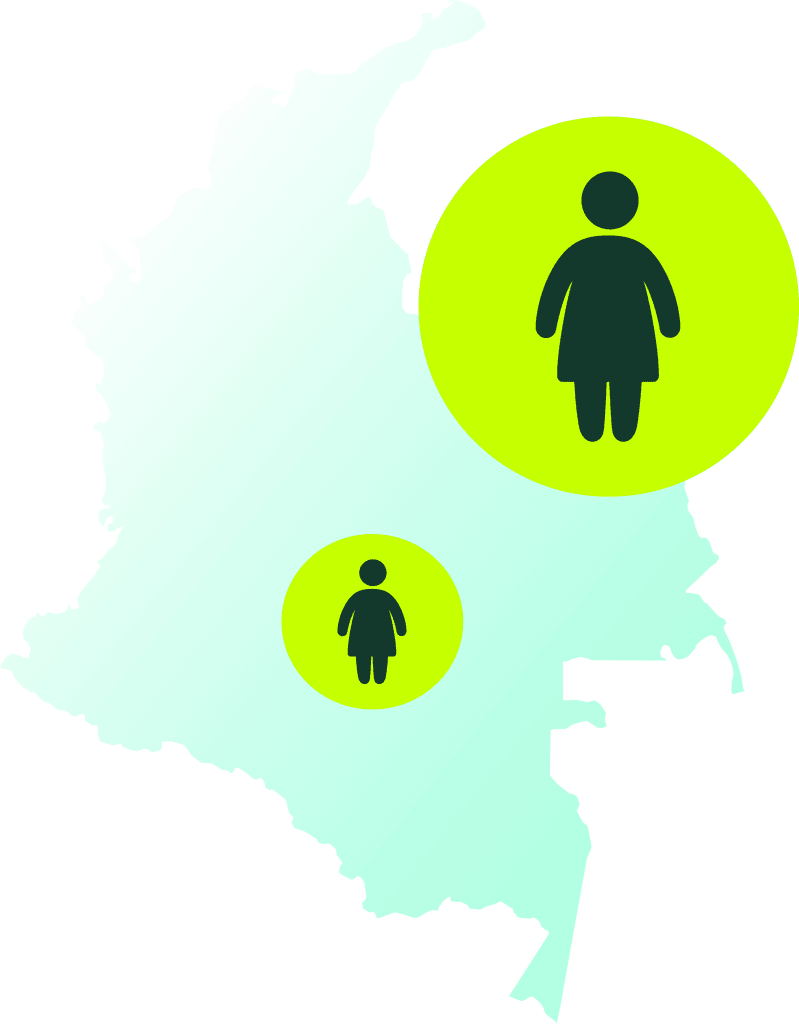
Ecopetrol made progress in the objectives of providing a more inclusive experience
for all Stakeholder Groups and achieving high standards in diversity and inclusion:
Inclusive environment: people assess their diversity and inclusion experience with a 93% favorability in the Ecopetrol Group, with women rating it at 94% compared to men at 92%.
Adherence to UN principles and standards applicable to the conduct of companies that address and prevent discrimination against the SOGI population (Sexual Orientation and Gender Identity) or LGBTQ+.
Adherence to WEPs (Women Empowerment Principles, March 2022). 91 points and leading rank in the measurement.
First time implementation of the UN LGBTIQ+ tool, a Standards Gap Analysis Tool, with a rating of 85% in the leading level.
In 2022, Ecopetrol advanced in its DEI standards, as follows:
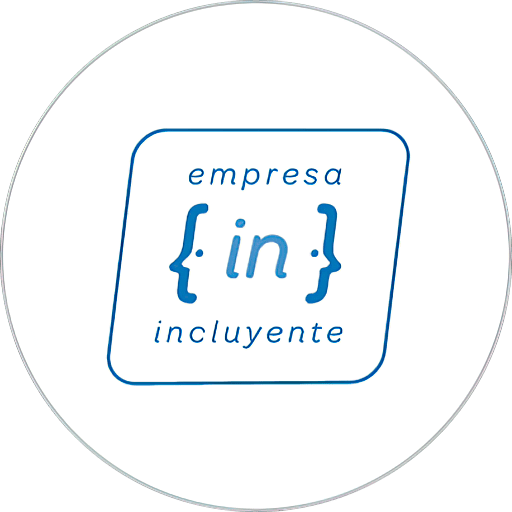
1
Inclusive Company Seal: Ecopetrol was awarded the highest recognition in inclusion by ANDI, USAID Colombia’s Program of Alliances for Reconciliation, ACDI/VOCA Colombia and Deloitte.
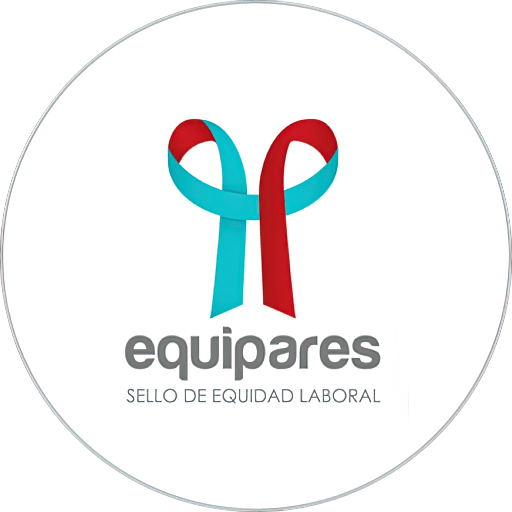
2
Equipares Silver Seal: Ecopetrol is bestowed the Equipares Silver Seal (System for Gender Equality) with a rating of 98.47%. Ten (10) Group companies have already adopted favorable processes for gender equality.
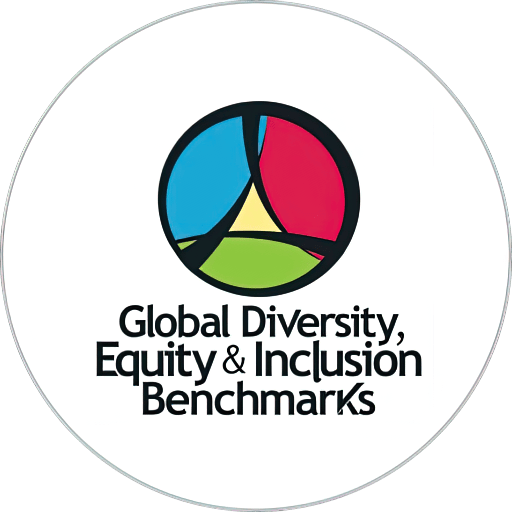
3
Global Diversity, Equity, and Inclusion Benchmark (GDEIB): in the maturity verification of the GDEIB standard, Ecopetrol was rated 4.0/5.0 (progressive level) by expert panelists authorized by the Center for Global Inclusion.
To learn about more recognitions, kindly refer to Annex 6.
*USAID: United States Agency International Development.
**ACD/VOCA: North American NGO that fosters sustainable economic growth, promotes initiatives that generate opportunities and improve the quality of life in communities. Based in Washington, DC.
Internal and External Communication:
1
Ecopetrol promoted its DEI communications strategy to shed light on its commitment to this purpose and to communicate the relevant issues to its Stakeholder Groups in an educational manner:
- 266 publications on the Company’s social media (18% more compared to 2021), with 6,620,868 views and a favorable performance with a 2% engagement rate.
- 38 DEI communication and educational products were disseminated, amounting to 71,694 internal views, as well as six (6) talks via streaming, with a total of 6,404 connections.
2
The following internal publications are worth highlighting: The month of GÉNEROsidad (Gender equality for all genders); Ella es Astronauta; SheIs Global Forum, LBGTIQ+ Glossary; Stories that inspire employment and inclusive entrepreneurship.
3
The following internal publications are worth highlighting: The month of GÉNEROsidad (Gender equality for all genders); Ella es Astronauta; SheIs Global Forum, LBGTIQ+ Glossary; Stories that inspire employment and inclusive entrepreneurship.
*Diversity and inclusion.
(GRI 11-77-7, 406-1) (WEF 20E)
No cases of discrimination for reasons of race, color, sex, religion, political opinions, nationality, social origin, age, disability, immigration status, HIV, gender, sexual orientation, genetic predisposition, lifestyle, and others, were reported in 2022. No cases of workplace harassment were corroborated. In this sense, it was not necessary to undertake repair plans. One (1) case of sexual harassment was confirmed in 2022. The reported person is no longer an employee at the Company.
To learn more about the DEI, Compliance, and Human Rights Program and policies, which prevent and mitigate discrimination risks, refer to pages 300, 301, and 302 of this Report.
For more details, including statistics related to harassment and discrimination incidents, go to the Ethics chapter on p. 148 and click on the following link.
(GRI 11-17-1, 413-1, 11-15-2) (WEF 21E) (SASB EM-EP-210a.3)
Indigenous Communities
For engagement with ethnic communities and the development of activities in their territory, Ecopetrol has adopted instruments such as the Human Rights and Business Guide , the Guide for engaging with ethnic communities, and the Procedure for prior consultations, which guide and organize engagement processes with ethnic communities, based on the determinations made in international and national instruments for the protection of Human Rights.
In 2022, Ecopetrol’s activities were in line with the provisions established in ILO Convention 169, ratified by Colombia by means of Law 21 of 1991. As such, the activities conducted by the Company are geared towards respecting the social, economic, cultural, and territorial rights of ethnic communities.
The engagement approach includes the following aspects, among others:
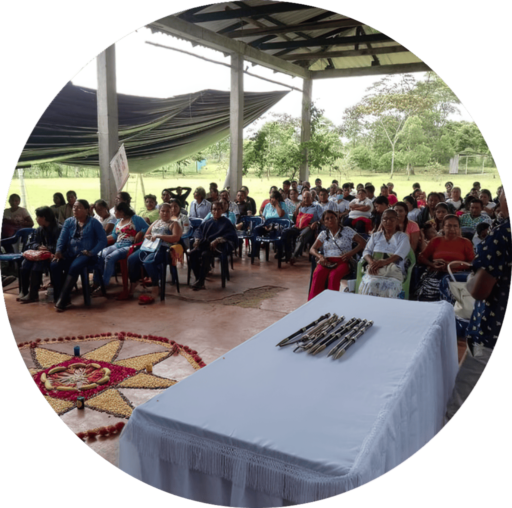
- Identifying the affected indigenous communities before acquiring a new block or expanding the areas of operation.
- Understanding the local context to engage with indigenous communities.
- The principles of good participation of indigenous peoples: for this, there is a guide on relations with ethnic communities, guidelines for dialogue with ethnic communities, and guidelines on coexisting with ethnic communities.
- Free, prior, and informed consent.
- Commitment to protect and preserve cultural heritage from the adverse impacts of local activities.
- Grievance mechanisms.
- Relocation/resettlement audit and assessment.
To engage with the ethnic groups living in the areas of operation of Ecopetrol, the Company adopts intercultural dialogue as the principle and linchpin for the process. For this reason, in addition to the diagnoses on the territories that can provide relevant information on the characteristics of the ethnic groups, baselines are built using intercultural and participatory methodologies during the prior consultation processes, to collect information from the community to define measures in managing the impacts of the projects.
In 2022, the Camentsá Biya de Orito community submitted its characterization document, which was used as input for finalizing the baseline document. Similarly, the preparation of the baseline was completed with the information collected in the visits with the Pasto Orito, Siberia, and Valle del Guamez community in 2021 and the characterization document provided by this community.
Both baselines were essential inputs in the workshop to identify impacts and management measures. These characterizations took place within the framework of the prior consultation conducted in 2022 for the modification of the Environmental Management Plan of the Occidente Norte production area in the municipality of Orito (Putumayo). In la Guajira, a socioeconomic and cultural diagnosis was conducted of the communities in the area of future interest for offshore exploration and production. This diagnosis showed the fishing dynamics of the communities, which contributed to the design of a project for the coexistence of gas transportation activities with artisan fishing.
| Proven and probable reserves on or near Indigenous lands | Unit of measurement | 2022 |
|---|---|---|
| Number of proven reserves on or near Indigenous lands | # | 340,986 |
| Total proven reserves | # | 1,680,555 |
| Number of probable reserves on or near Indigenous lands | # | 66,055 |
| Total probable reserves | # | 425,682 |
| Percentage of net proven reserves on or near areas considered Indigenous lands | % | 20.29 |
| Percentage of net probable reserves on or near areas considered Indigenous lands | % | 15.52 |
Prevention and Management of Intercultural Conflicts
The Guide for engaging with ethnic communities establishes as follows:
All Ecopetrol workers must be aware of the guide and express their willingness to comply with it.
It must be included as an annex to the contracts, whenever field work is being executed in territories with the presence of ethnic communities.
Community leaders must be informed of the mechanisms available for handling suggestions, questions, and concerns about the Company’s activities.
Workers and contractors must inform their respective supervisors or leaders of any conflict that may arise between them and the communities.
Ecopetrol is open to applying intercultural dialogue to resolve any differences with the communities.
(GRI 411-1, 11-17-2) (WEF 22E)
No human rights violations against indigenous communities were recorded in 2022.
No resettlement cases of ethnic communities were recorded either.
(SASB EM-EP-210a.3) [sfx src=”XVII”]
Prior Consultation
Two (2) steps are required to identify ethnic groups in the Company’s areas of operation. First, once the operating scope and the areas of influence and intervention of a project in Colombia are defined, the formal procedure is requested from the Directorate of the National Prior Consultation Authority – DANCP (Ministry of the Interior) to determine whether or not to conduct the prior consultation. The supporting documents provided by Ecopetrol for the process include a technical summary including:
- i) a description of the project activities,
- ii) the definition of the area of influence or area in which the impacts may materialize,
- iii) an analysis of the possible impacts and management measures to be implemented,
- iv) the specific intervention areas,
- v) a description of the biotic, abiotic, and socio-cultural and economic environments of the area where the project will take place,
- vi) a description of the ethnic communities present in the area of the project (if they have been previously identified in the area)
In the areas that already show information on the presence of ethnic communities, Ecopetrol informs the authority about the possible impacts that the project may cause to the previously identified communities.
Second, once the DANCP analyzes the information, it issues a resolution that determines the applicability or not of the prior consultation for the project. If affirmative, Ecopetrol requests said entity to initiate the coordination of the consultation process prior to the start of the project.
It may happen that, during any of the phases of the project, ethnic communities not reported by the DANCP may be identified in the areas. In such a case, and as part of its Human Rights due diligence, Ecopetrol verifies the situation and reports the presence in the area of said community to the DANCP and requests the due pronouncement from the authority on the applicability of the prior consultation. No evidence of the presence of communities not identified by the DANCP was reported in the project areas in 2022.
(OG-9)
Relevant Information on Previous Consultations Conducted and in Follow-up
In 2022, the Company implemented the following procedures to define the applicability of the prior consultation process for the following projects:
Request submitted to the DANCP to define the applicability of the prior consultation for 21 projects in the planning phase. Of these requests, the DANCP has indicated that prior consultation is not applicable in 15 projects, and that it is applicable in one (1) project with two (2) Indigenous communities, and the remaining five (5) are still undergoing review by the entity.
Notarization of prior consultations for one (1) project.
The PMA Modification of the Churuyaco Polygon has prior consultations underway that did not advance in 2022, due to the reassessment of some technical aspects related to the project.
Follow-up on prior consultation agreements in three (3) projects.
Completion of prior consultations for four (4) projects.
Within the framework of the engagement strategy with the DANCP, three (3) technical taskforces were held in 2022 to follow up on queries and two (2) training sessions for entity officials on industry-related issues.
En Colombia, el consentimiento previo, libre e informado es necesario para el desarrollo de proyectos que implican alguna de las situaciones establecidas por la Corte Constitucional:
- 01
Transfer or relocation of the Indigenous or tribal community from their place of settlement. - 02
Storage or deposit of hazardous or toxic materials in their territories. - 03
Measures that pose significant social, cultural, and environmental risk on their livelihood.
(SASB EM-EP-210a.3) (SFC XVII)
The prior consultations conducted by the Company implied a participatory process on the part of the ethnic communities, under the oversight of the National Government. Formal agreements were reached with the consulted communities during these processes, including grievance and follow-up mechanisms on the evolution of the projects, as well as preventive and compensation measures.
In 2022, Ecopetrol had nine (9) projects undergoing prior consultation processes. Four (4) of these closed their consultation processes, and one (1) corresponded to the notarization of agreements for the modification of the environmental instrument (Development of the Occidente Norte Area).
Prior consultations for the remaining projects are open: One (1) undergoing consultation and three (3) in the agreement monitoring stage.
Below are the communities currently undergoing prior consultations:
| Communities consulted / Location | Ecopetrol project | Progress/Phase reached in 2022 |
|---|---|---|
| Uitoto de Coropoya Reserve, Coreguaje de Jericó, Consaya, and La Teófila / Solano Reserves (Caquetá) | Samichay 2D seismic | Consultation probated in 2013. The project will not be deployed, so the authority was requested to close the prior consultation. |
| Sikuani Reserve, Vencedor Pirirí, Guamito Matanegra / Puerto Gaitán (Meta) | Mago Norte Exploratory Drilling Area | Consultation probated in 2013. The consultation closes in 2022. |
| Embera Chami de Dachidrua Town Hall / Puerto Parra (Santander) | Naphtha Exploratory Drilling Area | Consultation probated in 2014 and currently in the follow-up phase. Exploratory project executed. Consultation agreements fulfilled. Awaiting formal closing of the project to close the prior consultation. |
| Reserves: Cofán Ukumari Kanhke y Santa Rosa; Pasto Rumiyaco; Awá Ishu, and Nasa Uh. Consejo Comunitario Liberación y Futuro / Ipiales (Nariño) | PMA Sur Modification- Churuyaco Polygon | Seven (7) prior consultation processes underway. Awaiting definition on the continuity of the project. |
| Sikuani Alto Unuma Meta Reserve / Puerto Gaitán (Meta) | Polygon within the Rubiales Field: Consultation conducted in response to the order issued by the Council of State. | Consultation probated in 2019 and currently in the follow-up phase. Consultation agreements currently in execution. Follow-up meeting held in 2022. |
| La Palma Black Community and Cocosar / Saravena Black Community (Arauca) | Beryl Exploratory Drilling Area: Consultation conducted in response to the writ of amparo. | Prior consultation probated in 2019 and currently in the follow-up phase. This project will be operated by Empresa Parex, for which a meeting for the assignment of the prior consultation was held. |
| Cocosar / Saravena Black Community (Arauca) | Llanos 38 Seismic – Banadía 3D phase | Prior consultation probated in 2020 and currently in the follow-up phase. Exploration project not started. |
| Camentsá Biya Town Hall and Pasto Orito Siberia Town Hall (Orito, Putumayo) | Development of the Occidente Norte area | Prior consultation with probated agreements in 2022. Environmental authorization is required to start the project. |
| Altomira Reserve and Surantena Reserve | Chinchiná Pereira relief road | Prior consultation closed in 2022. |


